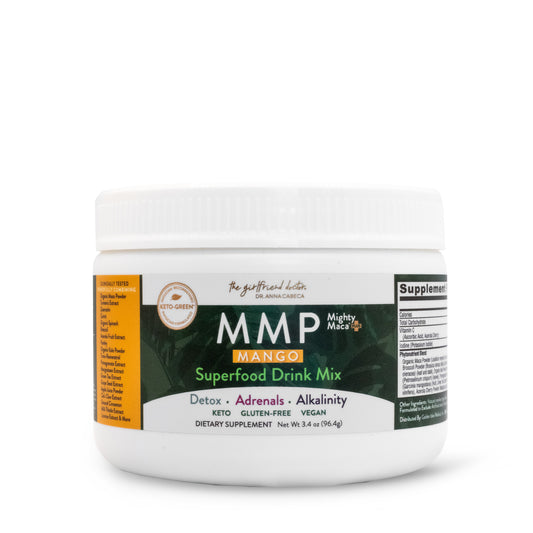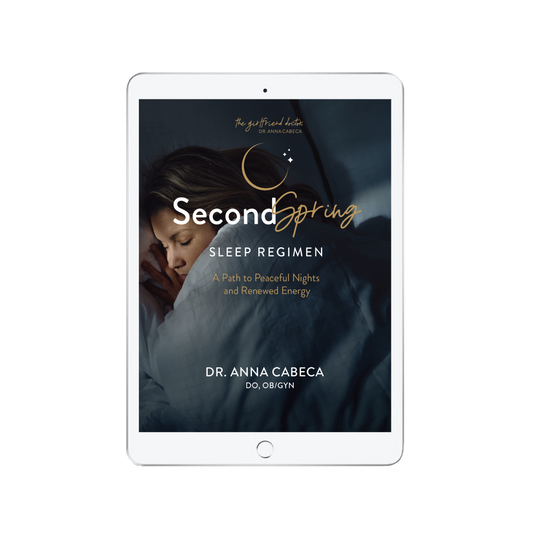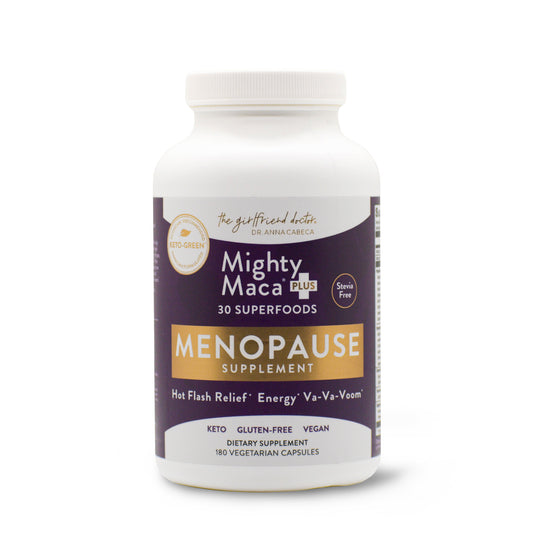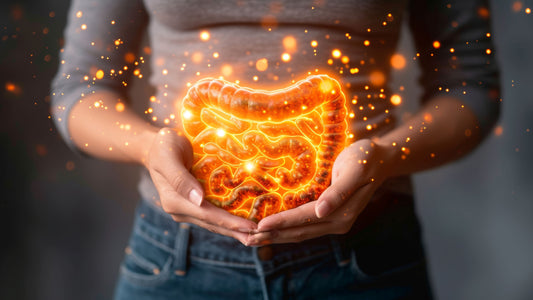Linda’s symptoms were as severe as they were alarming. “It started with constant snapping at my husband at work (I’m his bookkeeper). Over the course of a few months, I started getting heart palpitations and finally isolating myself because I felt so sick and emotionally drained,” said the 39-year-old mother of two.
Linda came to see me, tearing up the entire visit. She was afraid she was going to have a heart attack and worried that her marriage was in shambles.
After a thorough examination, blood testing, and hormone panels, it turned out that far from suffering a heart attack, Linda was in the throes of perimenopause, a period of fluctuating hormones and its resultant symptoms that in many women can be as distressing as those in full-blown menopause. “I couldn’t believe the extent to which my body was controlling my mental and emotional outbursts.”
Linda was one of the growing number of women approaching menopause or in the midst of it who are suffering from chronic anxiety.
Anxiety is a mental condition characterized by obsessive worrying, to the extent that your day-to-day life is impacted adversely. It can also cause symptoms such as heart palpitations, insomnia, dizziness, high blood pressure, and irritability so intense that it affects your closest relationships. In women like Linda, the main cause was fluctuating hormones, although anxiety can often spring from nowhere, especially if you’re dealing with some health issues, financial worries, or family problems.
Even if you’ve always thought of yourself as a strong woman, anxiety can hit you at this time of change. Declining progesterone (our calming hormone) and fluctuating estrogen is mostly to blame. It plays an important role in managing chemical activities in your brain. As levels of estrogen fall, anxiety and depression can set in. The stress hormone, cortisol, is involved too. The constant worries create chronic stress in which your body keeps churning out cortisol. The result is anxiety, insomnia, weight gain, and other distressing issues. So, the anxiety is not really your fault – it’s just physiology driving behavior.
I always tell clients: “If you hate your husband only 2 weeks out of the month, it is your hormones, not your husband!”

Many physicians will want to prescribe anti-depressants or anti-anxiety medications (SSRI’s) to help you get through the anxiety, but I don’t recommend this as a first line (although sometimes medication is necessary. We have to get to the root cause of the anxiety symptoms. Meds are often a Band-Aid that doesn’t really address the root cause – hormonal imbalance and typically, nutrient deficiency too.
For Linda, we did several things to fix her anxiety – and I recommend these for you to calm yourself and eliminate your anxiety.
-
Detox your body to balance your hormones. I put Linda on my Keto-Green Detox, which is outlined in my book The Hormone Fix. It focuses on mastering three control hormones: insulin, cortisol, and oxytocin. When those are in balance, your other hormones turn into a sweet, beautiful hormonal symphony.The plan includes detoxifying, alkaline vegetables such as the cruciferous family: broccoli, cauliflower, Brussels sprouts, and cabbage. These veggies contain influential plant chemicals, namely indole-3 carbinol (I3C) and diindolylmethane (DIM) that detoxify harmful estrogen molecules from the environment and restore hormonal balance. Other detoxifying vegetables include leafy greens, onions, garlic, and scallions.
The detox also focuses foods that boost a brain chemical called gamma-aminobutyric acid (GABA), which gives your brain the peace and calm it needs. These foods include cherry tomatoes, kefir, shrimp, green tea, and any food high in omega-3 fats, such as salmon. (If you want some additional insight into the relationship between hormones, food, and anxiety, check out my Couch Talk podcast with Ali Miller.) -
Take bioidentical progesterone (if symptomatic over age 45). Speaking of GABA, progesterone acts on GABA receptors in the brain, but as progesterone declines with age, so does GABA. You’re then prone to anxiety, depression, and poor sleep.
To treat these symptoms, I often use a progesterone topical cream that has 20 milligrams of progesterone and 10 milligrams of pregnenolone per pump dosage, applied in the evening at bedtime. (I go into a lot of detail about progesterone in my blog, Natural Progesterone Research and References.) You can also supplement with maca, and Chastetree berry to increase progesterone. - Supplement for sanity! A must-take supplement is magnesium, known as the relaxation mineral. Magnesium stimulates GABA receptors on cells for a calming effect. If you suffer from anxiety, you may be deficient in magnesium. Being stressed or anxious depletes the body of this mineral. I recommended supplementing with 250 milligrams (or up to 1,000 milligrams) before bedtime. (Back off the dose if you get loose stools.) I recommend magnesium l-threonate because it is a form that crosses the blood brain barrier and has been shown to be best for anxiety and sleep. (See Better Brain and Sleep formula)
Another important supplement for restoring calm is an omega-3 fatty acid, which has been shown to reduce stress-producing chemicals in the body. A good omega-3 will have 360 milligrams EPA and 240 milligrams DHA per 1,000-milligram capsule. Take 1,000 milligrams (with 360 milligrams EPA and 240 milligrams DHA) on divided doses - once in the morning and again in the evening.
Don’t forget Mighty Maca Plus, the herb in my green superfood drink, which is a remedy for hormone-related problems that grows high up in the Peruvian Andes. As an “adaptogen,” it helps the body deal with stress. It also exerts anti-anxiety and anti-depressant properties, according to a 2014 review study published in Revista Peruana de Medicina Experimental y Salud Publica. (Please see my blog on Mood, Energy, Health, Chocolate and Maca for more information on the health benefits of maca.)
Let me add that complementary therapies such as yoga, massage, and meditation can prove useful too. And of course, there’s great evidence that regular exercise lifts mood and relieves anxiety. (You can test your urine pH to give you clues to see how well you manage cortisol actually - see my blog here.)
As for Linda, it was so good to see her smiling again after she followed my plan for her. Linda healed her marriage and she was feeling “normal again.” She and her husband also benefited from my Sexual CPR program as well. :-)
She told me, “Life feels worth living again.” And it can feel the same way for you too.
One of my favorite comfort foods to help ease my anxiety is creamy cauliflower mash. You will love this more than mashed potatoes and feel even better after eating it!

Cauliflower Mash
Ingredients:
- 1 to 2 head organic cauliflower (depending on size), stem removed
- 3 to 4 tablespoons organic butter or ghee
- 1/2 teaspoon sea salt
Directions:
- Boil the cauliflower with the salt.
- When soft, add butter and mash well. Add more butter if desired.
- Salt and pepper to taste, and enjoy!
MAKES 4 SERVINGS
P.S.- Anxiety keeping you up at night?
Better Brain And Sleep is an all natural way to help enhance your sleep quality, manage stress, and promote a healthy mood. Get yours here!







